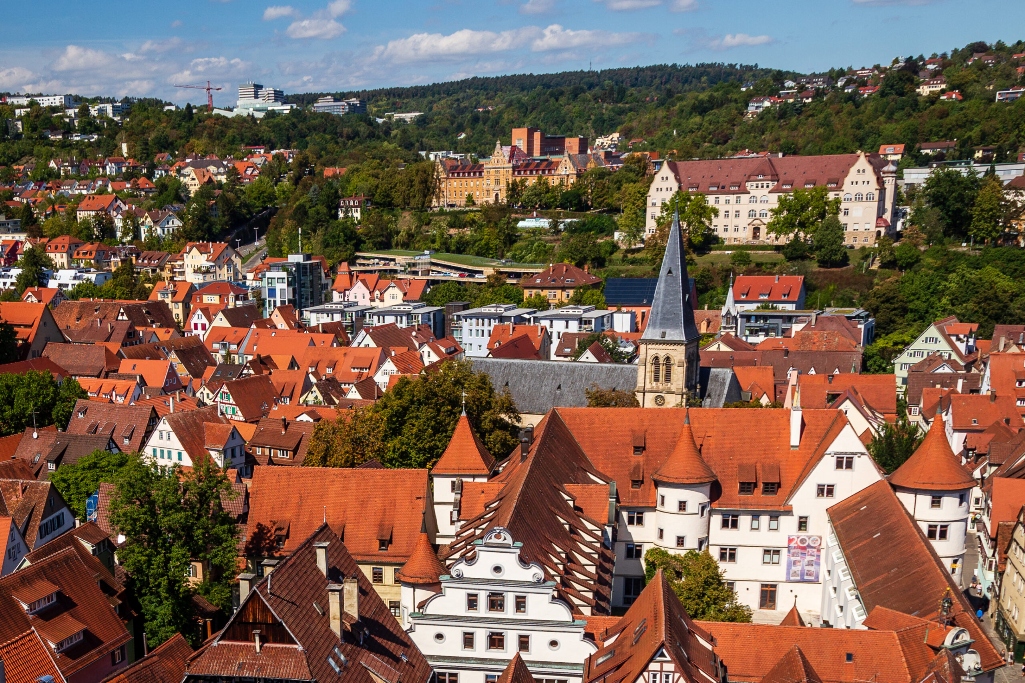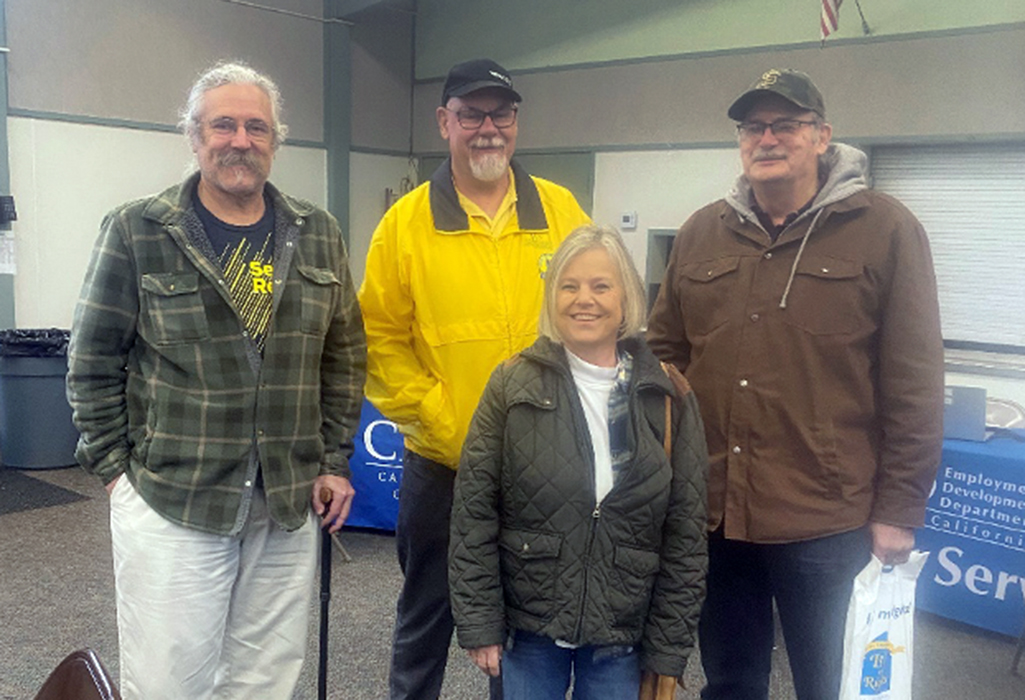
Church buildings are commonplace in Germany, missionaries Brandon and Brooke Keats say. But the gospel is not.
Germany is a land of contrasts, with a difficult past. Rich in Christian history, the nation was the focal point of the Reformation in 1517 and the seedbed of influential 20th century liberal theology.
Today, evangelicals are a razor-thin minority, and Christians are viewed as the bygone past. Still, the small gospel light shining in Germany is bright and is drawing those who seek a life worth living.
“The lostness is overwhelming,” said Brandon Keats*. He and his wife Brooke* serve with the International Mission Board (IMB) in North Germany. “At the same time, we do see kernels of hope, and especially with the younger generation, we see interest in spirituality.”
Haagan Haentsch, a German native raised under communism in the former East Germany, is now an American citizen living in Texas. Despite eastern Germany’s strong atheistic bent, Haentsch sees more willingness to discuss spiritual matters there than among Americans.
Behind the German people’s willingness to talk is deep-seated need, Haentsch explained.
“(They have) nothing to look forward to in the future. … There is this underlying feeling that ‘My life is void of a worthy cause and purpose,’” he said.
In a nation searching for meaning, the fields are ripe for the gospel. The time for more Christian workers in Germany is now, Brandon said.
“Even in street evangelism, we rarely have people be aggressive or straight up tell us ‘No,’” Brandon said. “There’s been an openness. The Lord is working.”
‘Amazed’ by answered prayer
As a youth growing up in East Germany, Haentsch helped his father and brothers erect a 50-foot radio tower in the backyard in order to pick up the American radio station out of West Berlin. The family was careful to change the radio’s tuning dial after listening in case the secret police entered their home, Haentsch explained.
Dramatic change came in 1989, when Haentsch was 18 years old. The Berlin Wall, the heavily fortified wall encircling American-, French- and British-controlled West Berlin, was dismantled.
Prayer, not politics, brought the wall down, Haentsch said.
Little known to the world at the time, East German pastors had gathered their people in weekly, candle-lit prayer meetings to pray for freedom. The prayer meetings grew by word of mouth, swelling to hundreds of thousands across East Germany by 1989 and garnering the government’s attention.
One writer in the British magazine “Premier Christianity” on the 30th anniversary of the fall of the Berlin wall attributed a comment to a communist official who said the government had prepared for every contingency “except candles and prayer.”
“We were amazed at how God would answer those prayers … there was no bloodshed,” Haentsch said. “The system went away with no armed conflict.”
The reunification of Germany saw church attendance spike, though some viewed it as a way to recapture traditions or a national identity. In East Germany, many remained agnostic or atheistic, Haentsch explained.
While Germans today tend to view Christians as “superstitious, old-fashioned, unscientific” and even “amusing,” a core of faithful believers there remain committed to following Christ, Haentsch said.
As prayer brought down the Berlin Wall, prayer can once again see the gospel take root in Germany.
Curiosity and near-extinct Christianity
Church buildings are commonplace in Germany — a mark of the nation’s theological heritage — but the gospel is not, Brooke said.
Those with questions about the Christian faith who walk into a church from the street may not hear the gospel, she said, adding: “Instead, they might hear, ‘You don’t have to believe that’” or “‘That’s not important.’”
Some believe Christians are extinct.
“They probably don’t know anybody who is a Christian and don’t know anybody who knows a Christian,” added Brandon.
Interns working with the IMB team met a college student on campus who believed Christians no longer existed and was surprised to learn of their faith.
The young man’s curiosity led to gospel conversations and to long-term friendships with the interns trained through The Salt Network, a local church ministry reaching and training college students in evangelism and church planting. Over time, the young man came to faith in Christ.
“This is what you will encounter,” Brandon tells new interns when they arrive. “You will get a lot of ‘no,’ but there are people out there being called by the Spirit.”
Failing materialism, rising ‘spirituality’
An older woman once told Brooke that life held no hope, the world would not get better, and life ended at death. The woman had no interest in discussing spiritual matters.
While the older generation may be more closed to the gospel, the couple senses that young people see that their parents’ philosophy of materialism is failing.
“A lot are realizing that they will never own a home, they will never have a job that will make them successful and happy,” Brandon said. “They are looking for something else.”
The search for something beyond “success or money” has led many into New Age spirituality, Islam and even the prosperity gospel, Brandon explained.
Haentsch said the economically stable life ensured by government programs is feeding the emptiness many feel.
“There is very little risk but also very little sense of purpose,” Haentsch said. He noted that many then ask, “So, what does my life stand for? What is worth living for?”
Shame is another factor impacting the culture. Certain behaviors, such as in child-rearing or environmentalism, carry shame when cultural expectations are not met.
“They are searching out, ‘How can I live out a nonshameful life or a life that I can be proud of?’” Brooke said.
Here the gospel resonates.
“The gospel tells them, ‘I don’t have to live in shame and carry this burden because the Lord takes it from me,’” Brooke said.
Staying the course
Healthy relationships and authenticity are key to reaching people, Brandon said.
He told of meeting Henry*, a self-described “gay, atheist communist” who chuckled when he learned that Brandon was a believer.
“Henry (told Brandon), ‘It’s cute that you believe in God. It’s a fairy tale,’” Brooke added.
A friendship developed, but circumstances changed and it was three years later before Brandon crossed paths with Henry again. Henry asked to meet Brandon in a coffee shop where they talked for four hours.
“At times (the conversation) was tense, and Henry did not become a Christian,” Brandon explained. “But that conversation resulted from just being his friend.”
Henry thanked Brandon for his continued friendship despite their differences. Brandon is hopeful that the open door of friendship will give God room to work and is hopeful his friend will someday come to faith.
“I want to keep talking about Jesus, and any moment that’s open, I’m going to,” Brandon said. “We want to be there when the Lord changes something in their hearts.”
*Names changed for privacy and security.


